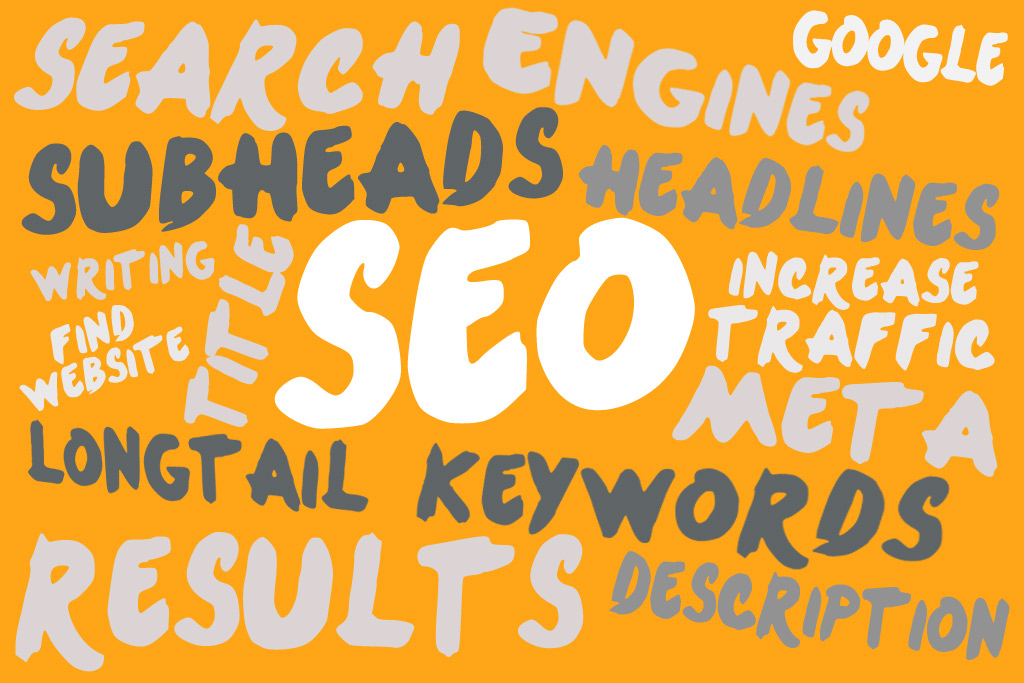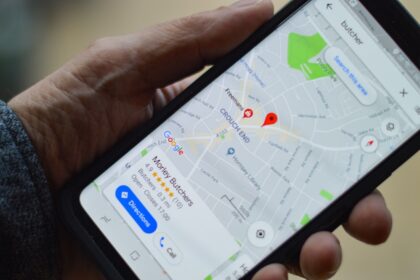18 important SEO fixes you need to know right now
Want your pages to rank on search engines to gain invaluable organic search traffic? You need to know these 18 important SEO fixes.
From checking expensive but common SEO mistakes you’re making right now without even realising, to plugging missed SEO holes that can give your rankings an impressive boost, our proven fixes come straight from the experts.
These aren’t advanced, technical SEO adjustments, but basic (and in some cases little-known) text tweaks that anyone can do right now.
18 important SEO fixes you need to know right now
So here they are: 18 important SEO fixes you need to know right now. Start applying them today and watch your pages climb the search engine results pages (SERPs).
1) Don’t cannibalise keywords
Keyword cannibalisation is one of the biggest negative effects on search engine rankings. If too many pages on your website are targeting the same keyword, they can end up competing against each other.
As a result, search engines are forced to choose which page they display in search results, and their choice may not be the one you want.
2) Optimise high ranking pages
It’s wise to keep optimising pages that already have higher rankings for your chosen keywords rather than trying to move a low ranking page higher. Working with higher ranking pages can bring you better results and can save you time and effort,
3) Use your keywords at the beginning of your body copy
Using your target keywords in your page’s body may increase your chances of ranking higher in search results. It is best to place your target keywords towards the beginning of your page.
4) Write longer content
Content length correlates with quality. Search engines try to provide more information to users, and thus sites with longer content tend to win higher rankings compared to those with insufficient content. That’s why it is important to make sure the content on your pages isn’t too sparse.
5) Make your content readable
Reading online is hard. Lengthy and overly complicated texts can make users stop reading your content and click away from a page that you’d like to promote in search results. As a result, this leads to a higher bounce rate, which will negatively affect your SEO.
Because search engines are becoming more focused on user behaviour, you want your audience to stay on your page as long as possible. So make sure that your text is easy to read.
6) Write helpful meta descriptions
While meta descriptions don’t have a direct influence on rankings, search engines do use them to to understand what your page is about.
Your meta description is also displayed in search results. However, if your meta description doesn’t meet certain requirements, search engines may decide to change it.
Equally, if your page’s doesn’t have a meta description, search engines will often just display its first sentence, which may be irrelevant and unappealing to users.
While this won’t necessarily affect your rankings, it’s worth ensuring all your pages have meta descriptions that give an idea of what your content contains and contain your keywords. Also bear in mind that people will choose which website in search results to click on based partly on the meta description, so make sure you write yours to boost your click through rate.
7) Use your keywords in your title tag
A <title> tag is an important on-page SEO element that helps search engines understand what your page is about. Users will also see it in search results. If your page has relevant keywords in its title tag, it has a better chance to ranking higher.
8) Use your keywords in your main headlines
If search engines can’t find your target keyword in the <h1> tag of your page (usually your main headline), they may rank it lower.
9) Don’t keyword stuff
Repeating your keywords on your pages too many times will result in a negative user experience and can hurt those pages’ rankings. Search engines could also consider this an attempt to manipulate your rank, which makes your page appear spammy to them. As a result they may ban your pages from SERP.
If your page elements contain multiple duplicates of your target keyword, search engines may consider your page to be spammy, and they may penalize you for keyword stuffing.
It is recommended that you use your target keyword only once in your page <title> tag. And don’t repeat keywords in your meta description.
10) Add videos
Embedding a video on your landing page will encourage people to spend more time on it as landing pages with video content tend to gain more user engagement than those without. And the longer people remain on your page, the more search engines will consider its content to be high-quality, and, as a result move it up the rankings.
11) Use related keywords
Don’t just focus on a narrow group of keywords when writing your content. Search engines have started looking for related words used in page content to help them provide users with the most relevant results for search terms.
So adding terms related to your target keywords can help boost your page’s relevance to search engines and help its rankings.
12) Get quality backlinks
Backlinks are still thought to be one of the most important ranking factors for search engines. So, to improve your position in SERPs build quality backlinks from relevant websites. The more quality backlinks a page has, the better your chances search engines will give it a higher ranking.
13) Don’t have duplicate content
Search engines don’t want identical pages filling their SERPs, so having duplicate content can significantly affect your SEO performance. Webpages are considered to be duplicates if 85% of their content is identical.
In a best case scenario, if you have duplicate pages on your website, search engines will only pick one to show, and this might not be the one you want. In a worst case scenario they could consider duplicate pages as an attempt to manipulate your rankings and may downgrade your website or even ban it from search results.
14) Don’t use duplicate title tags
By the same token, duplicate <title> tags make it hard for search engines to tell which of your pages is relevant for a specific search query, and which one should be shown in search results. As a result, pages with duplicate titles have less chance of ranking well and are at risk of being banned.
15) Don’t use naked anchors
When indexing a page, search engines consider anchor text. They also use them to understand what a page is about. And having a naked anchor (the raw URL) makes this harder for them.
So when adding links to pages, always use anchor text. Make sure it gives users (and search engines) a clue of what the target page is about, using short, descriptive text.
16) Check the length of your URLs
Although in theory there’s no character limit for your URLs, it’s recommended to keep them shorter than 2,000 characters. This is because some browsers can’t handle URLs exceeding this number.
Keeping URLs to a reasonable length will also make crawling them much easier. Extremely long URLs, meanwhile, may be ignored by search engines.
17) Make sure your page titles are long enough
As a rule, using short titles on webpages is recommended. However, they can be TOO short. Titles containing 10 characters or less probably won’t provide enough information about what your page is about, and therefore limit its potential to show up in search results for different keywords.
18) Don’t use too many nofollow links
Nofollow tags tell craw search engines not to follow a link. This mean that they don’t pass on any SEO value or anchor texts to the webpages they link to. They can also have a negative impact on the crawling process and your rankings as a result.
How to fix your SEO in just four weeks
Love to fix your SEO but don’t know where to start… and worry it’s a never-ending process you’ll always be chipping away at? We’ll help you fix your SEO in just four weeks.
Join our SEO Kit and you won’t just get an introduction to SEO in plain English, and a step-by-step guide to everything you need to master SEO for your website (including keywords, SEO content, voice search and backlinks) but you’ll get a four week plan to actually get it done.
So this time in four week’s time you could have an SEO plan up and running, and start ranking higher in search engines like Google. Here’s what you’ll cover each week:
- Fix your SEO basics and essentials
- Research your keywords
- Plan your content strategy
- Plan your backlink strategy
By the time you’ve finished, you’ll understand how SEO works and know what you need to do to climb up Google’s rankings. And you’ll have a bespoke strategy ready to go.
And to make it really easy to implement your strategy going forward, we give you monthly tasks to complete, and a checklist to tick them off and keep you on course.
SEO couldn’t be more easy or do-able with our help!
We’ve designed this course for beginners and time poor business owners. You don’t need any prior knowledge of SEO, and you just need to spare two to three hours a week to complete the course. (Or less if you’re a fast worker.)
And with lifetime access to the content, you can take longer if you wish – and return to the course every year to plan your next 12-month strategy, making it unbeatable value for money.
So if you’d love to understand SEO and create your own strategy – with easy tasks to follow to implement it – come and join our four week course.
We’ll show you how you can increase your chances of getting found for the right keywords – and knock your competitors off that all-important top spot of Google!
Ready to plan your entire SEO strategy in just four weeks, with our help? Join our SEO Kit now for instant access!
Photo by ergonofis










